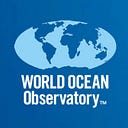Ocean Alchemy: Clean Water for Kiunga and Beyond
A solar-powered desalination plant in the coastal African community of Kiunga, Kenya is capable of producing approximately 70,000 liters of drinkable water every day — enough for up to 35,000 people — ten times the number of people living in Kiunga. Could desalination be the new modern alchemy for a sustainable future: turning undrinkable water into liquid gold?
© GivePower
In the middle ages, as science emerged from religion, there came a number of visionary inventors who organized a worldview that came to incorporate the discoveries of the time: the movement of the planets and stars, elements of a natural physical system, a new order of things, and inter-connections and changes that extended knowledge beyond superstition to theories of man and the universe. Using this awareness, expressed in a laboratory, alchemists became so bold as to think they could turn base metal into gold. In a sense, that endeavor represents the origin of modern process and invention that has lead us to transformative technologies such as nuclear fusion and fission, genetic modification, and artificial intelligence. How do we change one thing into another, the value measured as exponential benefit for all mankind?
A recent news item suggested a contemporary example: last month, in Kiunga, Kenya, a small fishing village on the Indian Ocean, population 3500, a non-governmental organization, GivePower, inaugurated a first solar-powered water farm in Africa, turning seawater into clean and sustainable drinking water, using a filtration system that turns brackish salt water into enough drinking water for up to 35,000 people every day, ten times the need.
We speak often at the W2O of the global water crisis. There is no part of the world that is today immune to the pollution, over-consumption, and commodification of water from land sources for irrigation, sanitation, and manufacturing, exhaustion of the most valuable natural element on earth without which none of us can survive. Again and again, we have written and argued for a water ethic, an acknowledgement that present rates of consumption and corruption of hydraulic systems cannot be prolonged, a fact now further exacerbated by climate conditions, increased drought, failed ground water re-capture and reserve, and the collapse of aquifers. The water crisis in upon us right now, evident in cities and rural areas, in the north and south, and everywhere in between where supply so evidently exceeds demand and people suffer by deprivation and death. The equation is direct and simple, the consequences are real. No one is immune.
According to the World Health Organization, 844 million people around the globe lack access to clean drinking water, and hundreds of thousands are dying from waterborne diseases. The numbers are staggering: some 2 billion people live in water-scarce areas, a number estimated to rise to 3.5 billion by 2025, just five years from now. When you turn on the tap and let it run, take that long shower — whoever you are, wherever you are — the effect is the same: depletion of a finite supply of fresh water that does not bode well for the future.
This cannot go on forever.
We have also spoken often here of the obvious solutions: first, mandatory conservation, re-construction of unmaintained and inefficient treatment and distribution systems, and re-organization of industrial water processes around regulatory standards for re-use and sustainability; and second, desalination of ocean water as the only alternative means to compensate additionally for the land-side loss. Desalination has long been argued against as unnecessary, energy expensive, and environmentally polluting. Such arguments are informed and accepted with a false sense of security. But all those arguments go quickly away when the harsh reality of depletion is revealed, the rivers and the taps run dry, disease increases, economies fail, chaos ensues.
Desalination of ocean water is the option to the scale required to meet this need. It too is fraught with peril. Historically, desal plants in the United States have been opposed by financiers, municipal leaders, and environmentalists; only a few have been built, but that will surely change when faced with no alternative. All the conventional economics and politics will be contradicted. There will be no other choice. To predict the future with any responsible vision, then, take a look at Kiunga, Kenya, where a small, inexpensive, transportable system fired by the sun has made an immediate difference between life and death, not just for the 3,500 locals but for the 31,500 more for whom that water will be accessible and essential to community well-being, and for all the rest of us — in Africa and worldwide — with any forethought and willingness to explore the implication of this ocean alchemy, new gold as fresh water, transmuted from the sea.
PETER NEILL is founder and director of the World Ocean Observatory and is author of The Once and Future Ocean: Notes Toward a New Hydraulic Society. He is also the host of World Ocean Radio upon which this blog is inspired.
